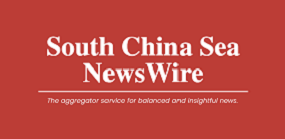By Dean Karalekas
Since the 2024 election victory of President-Elect Donald Trump, there has been a scramble among analysts and the commentariat to discern what effect this second Trump presidency will have on America’s foreign relations—especially in the Indo-Pacific region, and particularly here in Taiwan. Trump, being the wild card that he is, elicits both hope and despair, in roughly equal measures, for the future of Taiwan’s security and continued independence.
Those with an optimistic outlook for the next four years look to the previous Trump administration and his approval of unprecedented dollar amounts of arms sales to the Republic of China (ROC) on Taiwan, as well as passing laws like the Taiwan Travel Act and the TAIPEI Act (Taiwan Allies International Protection and Enhancement Initiative Act). Others with a more dour outlook cite his professed friendship and respect for Xi Jinping, and his recent unfortunate statements, such as claiming that Taiwan stole its vaunted semiconductor industry from America, and that Taipei should pay Washington a protection fee for its defense. In short: Trump is something of a Rorschach test, with each seeing what they want in his presidency based primarily on their visceral feelings about the man.
At a recent workshop in Taipei hosted by the publishers of Strategic Vision, an English-language security journal jointly published by the Taiwan Center for Security Studies and the ROC National Defense University, a number of security professionals from a variety of countries showed uncharacteristic unity in their assessment of the prospects for the coming administration, and it did not reflect a sense of hopefulness. The consensus of opinion was that Trump’s transactional approach to governance and his “America First” stance should make Taipei nervous. While that may ultimately prove to be the case, it is worth examining some of the underlying assumptions behind that conclusion.
For one thing, putting “America First” as a guiding principle should only rightly be expected from a U.S. administration. Canada serves as an object lesson in the dangers of having a governing elite that takes an internationalist perspective, seeing their country as a post-national state, without a core identity or culture (full disclosure: the author is Canadian). As a result, Canadians are currently grappling with 40-year high inflation, soaring housing prices, and a GDP per capita that is comparable to that of America’s poorest states. This is to say nothing of the shocking ineptitude with which Ottawa has allowed foreign interference in Canadian elections—especially by organs of the People’s Republic of China (PRC). America cannot afford to be this feckless, not least because the rest of the world (especially Taiwan, as well as Canada) relies on it to be the adult in the room.
Indeed, an America First approach would seem to bolster, not diminish, the prospects for the continued de facto independence of Taiwan, with the proviso that Trump puts a team around him that understands the intricacies of the Taiwan Strait situation. No matter which argument you use—be it about semiconductor manufacturing, the First Island Chain, keeping the confidence of other regional allies, or (an oldie, but a goodie) stopping the spread of communism—the only country that stands to lose as much as Taiwan in a People’s Liberation Army occupation of the island is, arguably, America.
In sum, Trump is the symptom, not the disease. The electoral success of the once and future president is the symptom of a growing realization that business as usual is no longer going to suffice, especially in our current geopolitical context. While we may not want to think of ourselves as being at war with China, China knows full well that it is at war with us. The Western perception is of a state of war being one after which the first bomb is dropped, or the first shot is fired. The Chinese conception of war is more nuanced, encompassing the psychological, public-opinion, and legal warfare detailed in Beijing’s Three Warfares Strategy. This is proceeding under full steam, as evidenced not only by the aforementioned election interference in Canada and other countries, but also by the cyber-attacks and grey-zone warfare currently being waged against Taiwan and the US; the salami slicing tactics with which China has essentially taken control of the South China Sea; Beijing’s militarization of its civilian fishing fleets; and numerous other campaigns as it seeks to displace America as the regional—and, eventually, global—hegemon.
Trump may indeed be a wild card, but given the new and shifting state of geopolitics especially in the Indo-Pacific region, perhaps a less predictable, more unconventional approach is exactly what is needed to meet this new and growing threat.
 Dean Karalekas is a security analyst specializing in East Asia and the author of Civil-Military Relations in Taiwan: Identity and Transformation. He is a research fellow at the Centre of Austronesian Studies at the University of Central Lancashire.
Dean Karalekas is a security analyst specializing in East Asia and the author of Civil-Military Relations in Taiwan: Identity and Transformation. He is a research fellow at the Centre of Austronesian Studies at the University of Central Lancashire.


